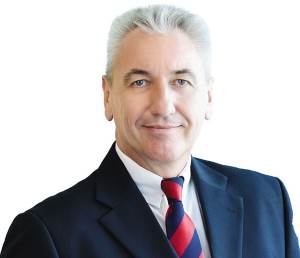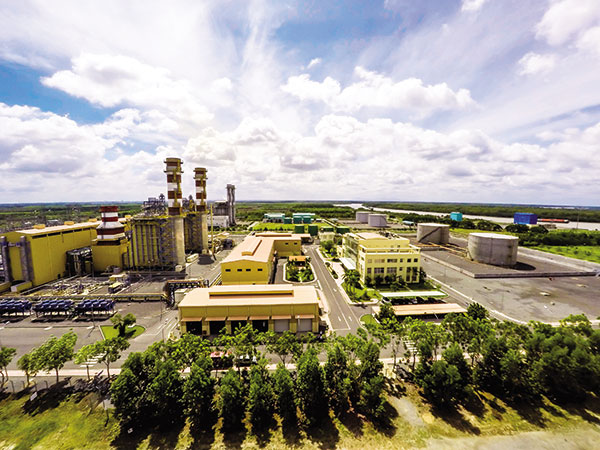Siemens’ net-zero quest
 |
Dr. Armin Bruck, Siemens’ regional CEO, spoke with VIR’s Thanh Dat about how the firm can become the world’s first major industrial company to achieve a net-zero carbon footprint by 2030, and contribute to Vietnam’s sustainable energy mix and greenhouse gas emission reductions.
Sustainability is now regarded as one of the most critical and globally relevant topics on the political and business agenda. What is Siemens’ perspective on this trend? What are some of the actions the company is taking?
From Siemens’ viewpoint, sustainability encompasses three dimensions: planet, people, and profit. It should protect our environment and conserve natural resources – our planet. It should improve welfare and quality of life, that’s the people dimension. And last of all, it should support economic growth and competitiveness, that’s profit.
For almost 170 years, Siemens has had a clear commitment to think and act in the interests of future generations. We believe acting responsibly is the only way to achieve a balance between profitable long-term growth, the planet, and people.
We apply the principles of sustainability at Siemens across the entire value chain – from our suppliers, through our own operations, to our customers – by designing sustainable products and solutions. In the last fiscal year, our environmental portfolio enabled our customers and partners throughout the world to significantly reduce their carbon dioxide (CO2) emissions by 521 million tonnes.
This amount is equivalent to more than 60 per cent of Germany’s annual CO2 emissions. As a result, our customers have been able to enhance their energy efficiency while increasing their competitiveness.
But we want to achieve more – and we can achieve more. We have therefore decided to reduce our own CO2 emissions footprint at a more rapid pace; Siemens aims to be the world’s first major industrial company to achieve a net-zero carbon footprint by 2030. Our goal is to cut our carbon dioxide emissions – which currently total about 2.2 million metric tonnes a year – in half by as early as 2020.
To achieve this goal, we are investing EUR100 million ($117.35 million) over the next three years in order to improve the energy balance of our buildings and production facilities. Furthermore, we have been actively supporting global initiatives to reinforce sustainability standards around the world and extend our know-how. We are fully committed to the targets and principles of the United Nations Global Compact.
 |
| Siemens is the turnkey supplier for Nhon Trach 2 combined cycle power plant, one of Vietnam’s most efficient power plants |
Higher energy consumption is said to be one of the major causes for the increase of greenhouse gas (GHG) emissions. Can we meet the rapidly rising energy demand worldwide, and at the same time, reduce CO2 emissions?
It’s ambitious, but yes, it’s achievable with the consequent usage of green and efficient technologies both on the energy supply side as well as on the energy consumption side. Cleaner energy generation is today possible via renewable technologies such as wind power or highly efficient gas turbines. On the other hand, it is important to control energy consumption by integrating energy-saving products and solutions into buildings, industrial manufacturing plants, or public transportation systems. This holistic approach will significantly reduce CO2 emissions and, over time, help to lower costs.
Could you please provide some further insights on the topic of energy efficiency? As a world-leading green technology company, what is Siemens offering?
Siemens has been developing a comprehensive Energy Efficiency Programme since 2011. This programme helps modernise existing infrastructure that leads to greater energy efficiency, fewer CO2 emissions, and lower operating costs – all with a short payback period.
The list of appropriate products from the Siemens portfolio is long and includes energy management and monitoring systems, automation technology for buildings and production processes, transportation, and energy-efficient drive systems.
Monitoring systems play an important role because they reveal areas where energy is being wasted. Crucial factors are the use of efficient components and systems to recycle unused energy, such as waste heat. By increasing efficiency in these ways, companies will not only help reduce greenhouse gases and protect the environment, but also help ensure their own well-being, especially in times of increasing energy prices. Buildings offer huge potential for energy savings – after all, they are responsible for 40 per cent of the world’s energy consumption and 21 per cent of greenhouse gas emissions.
Intelligent building technologies can dramatically increase energy efficiency and comfort in buildings, along with the productivity of building occupants and companies, thus reducing the demand for central heating.
Energy-efficient and environmentally-friendly transportation can be achieved with mass transportation systems, electric vehicles, and hybrid buses. For example, Siemens’ advanced and innovative mobility solutions have substantially transformed the development of urban mass transit in Malaysia, driven by the organisation’s key focus on greater comfort, energy efficiency, and the benefits of reduced environmental pollution. In industry, there are significant savings to be made in energy efficiency and production. Electric engines, which are used for conveyor belts or pumps, for example, currently demand almost two-thirds of the energy used in industry. With optimised drive solutions from Siemens, the power consumption of industrial drives is reduced by up to 70 per cent – such an investment pays for itself through energy savings in less than two years.
Vietnam’s Intended Nationally Determined Contribution pledges to reduce GHG by 8-10 per cent by 2020 compared to its business-as-usual scenario. How can Siemens help Vietnam realise this commitment?
We are the turnkey contractor and key supplier for major power plant projects such as the Phu My 2-1 extensions, Phu My 3, Ca Mau 1 and 2, and Nhon Trach 2. Siemens’ technology in combined cycle power plants helps Vietnam reduce nearly five million tonnes of CO2 emissions per year compared to the world average.
Efficient energy transmission is another important aspect in energy supply. Our high-tech equipment has been installed in many major substations of the national grid, such as the 500-kilovolt transmission lines in Son La and Quang Ninh, thus enabling electricity to be transmitted over long distances with lower loss.
In addition, our energy efficient automation and drive products are used extensively in many countries’ major industries such as food and beverage, cement, and metal. Siemens’ Apogee Building Management Systems and Algorex Fire Alarm Systems have been installed in many important buildings such as the Bitexco Financial Tower in Ho Chi Minh City and My Dinh National Stadium in Hanoi, helping our customers to reduce energy costs by an average of 20 to 30 per cent.
Above are just a few examples of how Siemens has helped Vietnam in terms of climate protection. But it’s certain that we can do more. For instance, Siemens ELFA hybrid-drive technology can help city buses to reduce fuel consumption by up to 35 per cent. According to our calculations, the implementation of a metro line in Ho Chi Minh City will help to save over 400,000 tonnes of CO2 per year from being emitted. We are also working on bringing wind power generation technology to Vietnam.
Constant flooding, severe drought, and salinity intrusion are some emerging issues in Vietnam, which are considered as consequences of climate change. What can Siemens do to help Vietnam address these challenges?
Vietnam is among those countries that are most vulnerable to climate change. There are more and more news stories about historic flooding, drought, and salinisation. Siemens has a broad portfolio for urban infrastructure that can help cities to become more resilient and sustainable. Solutions like smart grids and software solutions for rail automation, traffic management, evacuation management, and building management systems contribute to minimising the impact of natural hazards.
Intelligent automation of infrastructures is a key success factor in making systems more flexible and easier to control and co-ordinate. Siemens Automation, which is used extensively worldwide including at the Marina Barrage in Singapore, can help with flood control and the creation of freshwater reservoirs in cities like Ho Chi Minh City. And whether desalinating seawater, treating drinking water and wastewater, or managing water networks and water transportation, our technological solutions offer assistance with everything from facility planning to system monitoring and optimisation.
What do you think about the role of the Vietnamese government and the private sector in environmental protection and the fight against climate change?
In my view, the spirit of sustainability is about thinking and acting together as partners. More than ever, we as businesses and political agents must join forces to act sustainably – with respect to the economy, the environment, and society. I believe the private sector has as much responsibility as the government does, if not more, to actively engage in efforts to reduce GHG emissions and to help lead the transition to a low-carbon climate-resilient economy, as well as in ecological protection.
I think that private sector involvement can be enhanced, if governments are able to facilitate higher flows of clean energy investment, encourage business practices with a lower-carbon footprint, as well as develop a regulatory environment that encourages renewable penetration and energy efficiency. It’s time for sustainability for today and for future generations!
What the stars mean:
★ Poor ★ ★ Promising ★★★ Good ★★★★ Very good ★★★★★ Exceptional
Latest News
More News
- Hermes joins Long Thanh cargo terminal development (February 04, 2026 | 15:59)
- SCG enhances production and distribution in Vietnam (February 04, 2026 | 08:00)
- UNIVACCO strengthens Asia expansion with Vietnam facility (February 03, 2026 | 08:00)
- Cai Mep Ha Port project wins approval with $1.95bn investment (February 02, 2026 | 16:17)
- Repositioning Vietnam in Asia’s manufacturing race (February 02, 2026 | 16:00)
- Manufacturing growth remains solid in early 2026 (February 02, 2026 | 15:28)
- Navigating venture capital trends across the continent (February 02, 2026 | 14:00)
- Motivations to achieve high growth (February 02, 2026 | 11:00)
- Capacity and regulations among British areas of expertise in IFCs (February 02, 2026 | 09:09)
- Transition underway in German investment across Vietnam (February 02, 2026 | 08:00)
















 Mobile Version
Mobile Version